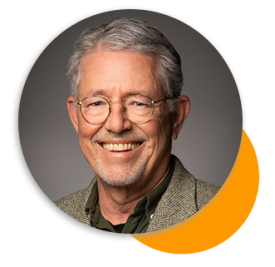
H.E. Amb. Gerhard Putman-Cramer
Chief Executive Officer, DIHAD Sustainable Humanitarian Foundation and Director, DIHAD International Scientific Advisory Board (DISAB)
It is generally acknowledged that our world is increasingly polarised. And that this polarisation, these growing divisions, is adversely affecting development assistance and humanitarian aid. While neither has ever been devoid of parallel (geopolitical and/or economic) motives, universally accepted standards and norms have nonetheless been firmly in place, duly overseen by bodies such as the United Nations and the Red Cross/Red Crescent Movement.
In the case of development assistance, these principles are largely centred on national oversight, prioritisation in line with the Sustainable Development Goals (SDGs) and criteria related to facilitated lines of credit. In the case of humanitarian action, the fundamental principles are humanity, impartiality, neutrality and independence; these are rooted in International Humanitarian Law and have been regularly re-asserted by the United Nations (also through GA Resolution 46/182, at the creation of its Department of Humanitarian Affairs, now OCHA).
It is also generally recognised that we are currently experiencing multiple and often overlapping crises, that humanitarian needs continue to grow beyond our capacity to meet them and that the key drivers are conflict and climate change. The armed conflicts raging across the world challenge our capacity to respond, also/especially in as much as elementary humanitarian principles are increasingly flaunted: access is denied or restricted, aid is weaponised and International Humanitarian Law is violated.
Meanwhile, as temperatures continue to rise and weather-related disasters are ever more frequent and severe, we are increasingly aware of the catastrophic impact of climate change. The human consequences are evident in record levels of food insecurity, hunger and child malnutrition as well as increased levels of poverty, disease outbreaks and heretofore unequalled numbers in terms of forced population displacements.
The usual way of conducting our humanitarian operations is failing and our attempts at reaching an ever-increasing number of intended beneficiaries coincide with a sizeable decrease in available funding. OCHA’s Financial Tracking System reports a 2023 total in humanitarian aid contributions of US$ 34bn, as opposed to US$ 41.5bn in 2022, and numbers in 2024 to date are not encouraging. As far as the SDGs are concerned we know that few of these (12%) are actually “on track”. In this context, and while wanting to examine the nature and outcome of a reportedly growing development/humanitarian aid interface, one wonders about the best way forward as well as about the need for new actors, also at the local level.
All things considered, the question remains – this in the light of the growing number of humanitarian emergencies and development challenges – as to whether an increasingly polarised world is not our greatest problem.
It is with this question in mind that the DIHAD International Scientific Advisory Board (DISAB) has decided to adopt, as the theme of the DIHAD 2025 event (its 21st edition):
“Humanitarian Aid and Development in a Polarised World”
Sessions will focus on:
-
Conflict and the evolution of humanitarian principles
-
The changing landscape of financing
-
The development/humanitarian aid interface
-
Globalisation and localisation; new actors
-
The exponential impact of climate change
-
Population displacements; trends and challenges
At DIHAD 2025 we will once again gather friends and colleagues from national government authorities, international and non-governmental organisations, the Red Cross/Red Crescent Movement, foundations and charities, academic institutions, the media and the private sector. As in all previous editions of the Conference, we will attempt to come up with several actionable agreed conclusions and recommendations.
On behalf of DIHAD’s International Scientific Advisory Board, I am very pleased to invite you to attend the event’s 21st edition. Each edition of the annual DIHAD event, held under the patronage of H.H. Sheikh Mohammed Bin Rashid Al Maktoum, Vice-President and Prime-Minister of the UAE and Ruler of Dubai, focuses on different aspects of our collective humanitarian aid and development endeavours. At our 2025 event, and as per the above-outlined sessions, we will attempt to highlight perspectives that could lead to a reduction in the volume of aid currently required and identify best practices to enhance its delivery.
The presentations and panel discussions, as well as all interaction within and in the margins of the event, will continue to enhance the knowledge that humanitarian and development actors have about each other, thereby ensuring greater understanding and clarity on respective roles, capacities and mandates and further reinforcing the notion of effective coordinated action.
DIHAD 2025 promises to be, yet again, a memorable event!


